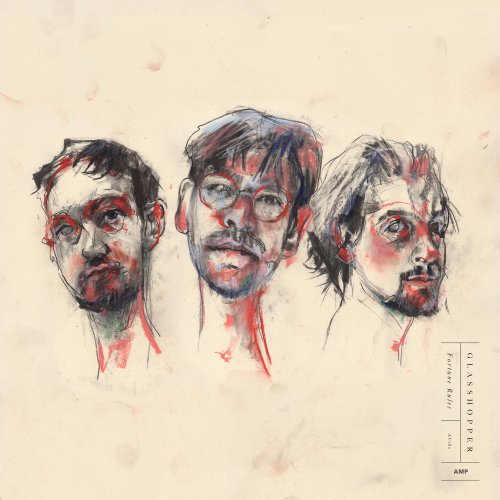Glasshopper - Fortune Rules (2020) [Hi-Res]

Artist: Glasshopper
Title: Fortune Rules
Year Of Release: 2020
Label: AMP Music & Records
Genre: Jazz
Quality: mp3 320 kbps / flac lossless / flac 24bits - 96.0kHz
Total Time: 01:01:44
Total Size: 144 / 349 mb / 1.18 gb
WebSite: Album Preview
TracklistTitle: Fortune Rules
Year Of Release: 2020
Label: AMP Music & Records
Genre: Jazz
Quality: mp3 320 kbps / flac lossless / flac 24bits - 96.0kHz
Total Time: 01:01:44
Total Size: 144 / 349 mb / 1.18 gb
WebSite: Album Preview
01. Letters
02. Jenny
03. Sky Circle
04. Clydesdale Intro
05. Clydesdale
06. Birdwing
07. Ember
08. Build a Bridge
09. Glasshopper
“I was lost for a bit, trying to figure out what I was doing,” says Jonathan Chung. The saxophonist/composer grew up in Glasgow, went to study in Leeds, and ended up returning to Glasgow. “Doing little gigs in the Jazz Bar in Edinburgh and dotted around Glasgow relit that urge to do music again and then that spurred me to think about moving to London.” He won a place on the jazz Masters programme at the Royal Academy of Music. Drummer Corrie Dick, with whom he’d been pals in Glasgow, introduced him to electric guitarist James Kitchman, and they started the trio Glasshopper.
The band’s debut album Fortune Rules is the result of six years’ growth and is a significant step forward for the group, expanding and refining the group’s sound, instrumentation and ambition. Its bold, synecdochic fifteen-minute opener “Letters” builds from the spacious electronic textures of James Kitchman’s guitar, picking up the diverse influences of Jonathan Chung’s tenor saxophone from folk melody to gnarly outside jazz playing, allied to Corrie Dick’s mastery of percussive texture and fundamental drive.
The album has a visual suggestiveness and cryptic sense of personal resonance that spills over from Chung’s impassioned work with multisensory art collective Bittersuite and the refugee charity Play For Progress. “I don’t come from a musical background,” he says. “My dad’s Chinese and runs a takeaway, my mum comes from a small coal-mining village near Edinburgh. I think I heard a busker in Glasgow play the saxophone but I couldn’t get the opportunity to learn in primary school.”
When he started out on tenor he’d spend his pocket money on records with saxophone players on the cover. “My friends were into heavy metal. I was always kind of this odd one out. I was looking for this other thing, and discovered improvisation and just went down that rabbit hole. I was trying to absorb all this music and I came across a band called Acoustic Ladyland that just sort of blew my mind: dangerous, out there, amalgamating everything that I love, with hard-hitting melodies.”
While studying the jazz Masters he especially enjoyed composition. “Lessons from Pete Churchill opened up my ears and how to really free up and add some structure to my writing.” He enjoyed the freedom to explore different ideas and study with different tutors including Barak Schmool, and to meet people. “It was a nice way to just get back into music for me. To be honest I was trying to find a place in it all again.”
The album title Fortune Rules comes from a mishearing of an older tune, Fourteen Wolves. As he pondered the word ‘fortune’, it started to resonate with him: “It’s this sense of what drives a musician or any individual to do what they’re doing, this deeper quest for happiness and fulfilment. Even though we’ve been working together as the trio for six years, for me this album feels like another beginning, like we’ve just started.”
The feeling of a deep but cryptic personal meaning in the music is further fueled by the addition of haunting vocal performances from Sylvia Silas and Ed Begley, with a stark original lyric by Chung and another by the 13th-century Persian poet Rumi. “There’s a lot of time to reflect nowadays and I’ve certainly been doing a lot of that. When we were recording the main goal was just to get the tunes down. There was no agenda of deeper meanings but now I’m at this new stage. I’ve never released a record like this before and I’m starting to reflect back on what we’ve done over the years. I’ve not thought about music or certainly my own music in this way for quite a while.”
The earlier mention of heavy metal reminded me that the track Glasshopper is part of a modest genre of ‘songs that have the same name as the band’. The daddy is Black Sabbath by Black Sabbath. Usually the band name comes first; in this case the band name came from the tune. “I get these stories in my head,” he says. “The idea is basically a grasshopper trying to jump out of a glass but it can’t. It can see everything outside and it can’t get out. I think originally the title was ‘Cricket trying to jump out of a glass’—well, that’s a really stupid title, but grasshopper to glasshopper, that’s catchy. ‘Glasshopper’ represents the frustration of being a musician and trying to find your voice. I feel like with the band I managed to find that. Two musicians who could hear what I was trying to do and really bring that sound out.”



![Bosq, Kaleta - No Be Today (2024) [Hi-Res] Bosq, Kaleta - No Be Today (2024) [Hi-Res]](https://img.israbox.com/img/2026-01/21/b6qjulbuzofqpgch2g3kpo3m3.jpg)

![Genre - Commercial Success (2026) [Hi-Res] Genre - Commercial Success (2026) [Hi-Res]](https://www.dibpic.com/uploads/posts/2026-01/1768906441_j1odg2907l945_600.jpg)

![Drogo - Smart Horror Show (2026) [Hi-Res] Drogo - Smart Horror Show (2026) [Hi-Res]](https://www.dibpic.com/uploads/posts/2026-01/1768666238_m7yxzthbekybs_600.jpg)
